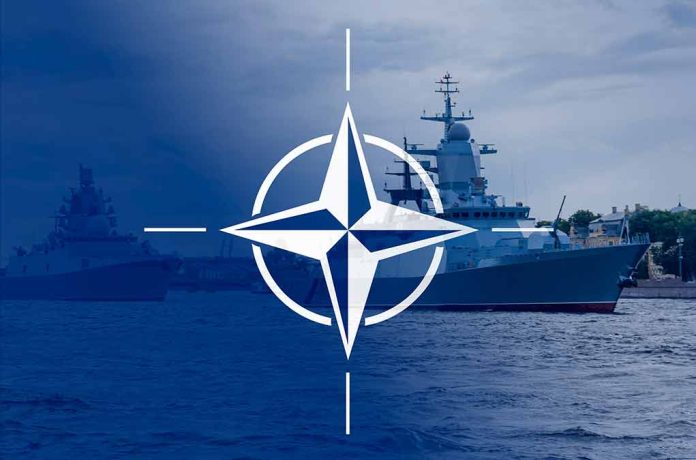
Spain’s socialist Prime Minister Pedro Sánchez refuses to meet NATO’s proposed 5% defense spending goal while other allies prepare to shoulder their fair share of collective security costs.
Key Takeaways
- Spain is actively seeking exemption from NATO’s proposed 5% GDP defense spending target while maintaining the lowest current spending level at just 1.3%
- Prime Minister Pedro Sánchez claims meeting the target would damage Spain’s welfare system and force rushed military equipment purchases
- President Trump and NATO Secretary-General Mark Rutte are pushing for increased defense spending commitments from all alliance members
- Spain’s Defense Minister indicated they won’t block the 5% target for other nations but will only commit to the previously established 2% level
- Spain’s left-wing coalition government includes the Sumar party, which fundamentally opposes increased military spending
Spain’s Plea for Special Treatment
As NATO members prepare for next week’s summit in The Hague, Spain has emerged as a reluctant participant in the alliance’s defense spending ambitions. Prime Minister Pedro Sánchez has formally requested a special carve-out from the proposed 5% GDP defense spending target being championed by President Trump and incoming NATO Secretary-General Mark Rutte. This request comes despite Spain currently maintaining the lowest military budget in the entire alliance at just 1.3% of GDP for 2024, well below even the previously established 2% minimum threshold.
“Spain wants a carve-out from NATO’s likely future defense spending goal of 5 percent of GDP, the country’s Prime Minister Pedro Sánchez said ahead of next week’s high-stakes alliance summit in The Hague,” said Pedro Sánchez, Prime Minister of Spain.
Spain wants a carve-out from NATO's likely future defense spending goal of 5 percent of GDP, the country's Prime Minister Pedro Sánchez said ahead of next week's high-stakes alliance summit in The Hague.
“Spain will continue to fulfil its duty in the…
— Vineet (@cozyduke_apt29) June 19, 2025
Socialist Coalition Resistance
The Sánchez government’s resistance to increased defense spending appears deeply rooted in its socialist coalition politics. Spain’s ruling Socialist party governs in partnership with the far-left Sumar party, which openly opposes any increase in military expenditures. This political reality creates significant domestic obstacles for Spain’s ability to meet alliance obligations, even as other European nations like Sweden are making extraordinary commitments by borrowing hundreds of billions of krona to reach the 5% target by 2032.
“Spain will continue to fulfil its duty in the years and decades ahead and will continue to actively contribute to the European security architecture. However, Spain cannot commit to a specific spending target in terms of GDP at this summit,” said Pedro Sánchez, Prime Minister of Spain.
In his communication with NATO leadership, Sánchez claimed that moving toward the 5% target would harm Spain’s welfare system, increase taxation, and negatively impact green transition initiatives and international cooperation programs. These arguments reflect classic socialist prioritization of domestic welfare programs over national defense commitments, even as threats from Russia and instability in the Middle East demand strengthened NATO capabilities.
Diplomatic Maneuvering
Despite seeking exemption for itself, Spain appears to be attempting a diplomatic balancing act by not directly obstructing the broader NATO consensus. The Spanish Defense Minister has indicated that while Spain won’t block the 5% target for other nations, it intends to maintain only the 2% spending level for itself. This approach effectively means Spain wants the security benefits of a stronger alliance while contributing proportionally less than other members.
“Of course, it is not our intention to limit the spending ambitions of other allies or to obstruct the outcome of the upcoming summit,” said Pedro Sánchez, Prime Minister of Spain.
The forthcoming NATO summit presents a critical test for alliance solidarity. With President Trump pushing for all members to contribute their fair share to collective defense, Spain’s request for special treatment highlights the ongoing tension between European welfare states and the real-world security demands facing the Western alliance. NATO’s consensus-based decision-making process gives Spain potential veto power, adding complexity to negotiations even as global security threats demand unprecedented unity and commitment from all alliance members.





